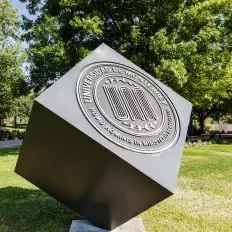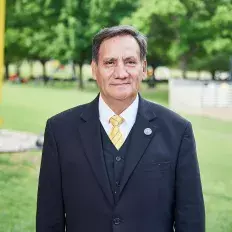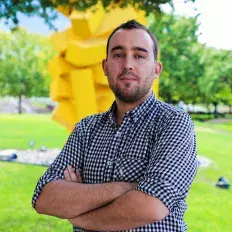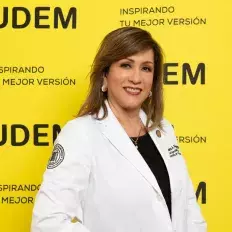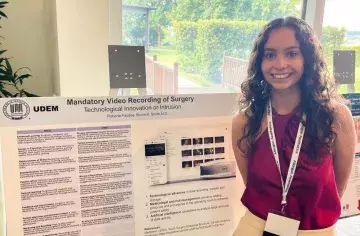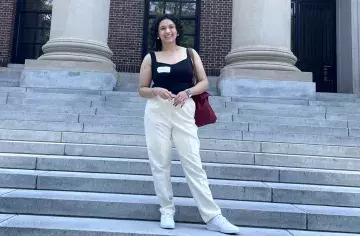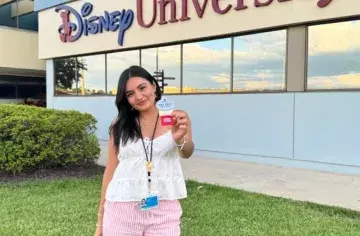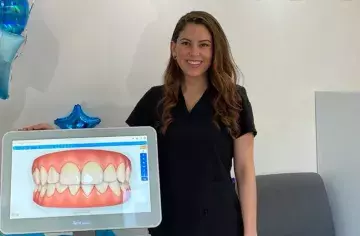Description
The specialist in Cardiothoracic Surgery, through medical practice grounded in problem-solving educational methodology, characterized by being able to provide quality professional care to the community in any national and international setting.
The duration of the Specialty in Cardiothoracic Surgery is 4 years.
Required Academic Background: 2 years of General Surgery Specialty.
Primary Clinical Site
-
Mexican Institute of Social Security (IMSS)
-
High Specialization Medical Unit, Cardiology Hospital No. 34
-
Recognition of Official Validity of Studies (RVOE) granted by the Secretary of Public Education according to agreement: 20240081, valid until 01/19/2030
Objective
To prepare medical specialists in the field of Cardiothoracic Surgery with academic training that includes knowledge of basic sciences, clinical sciences, and the fundamentals of general surgery, capable of diagnosing and resolving cardiothoracic disorders, skillfully utilizing cutting-edge technology in thoracic surgical procedures to develop a professional practice with the highest standards of patient care and safety; coordinating with the multidisciplinary healthcare team.
Additionally, the specialist in Cardiothoracic Surgery will operate within a framework of ethics, humanism, and a sense of service, respecting the environment; using scientific research as a regular tool in daily practice and committed to continuous updates in their field.
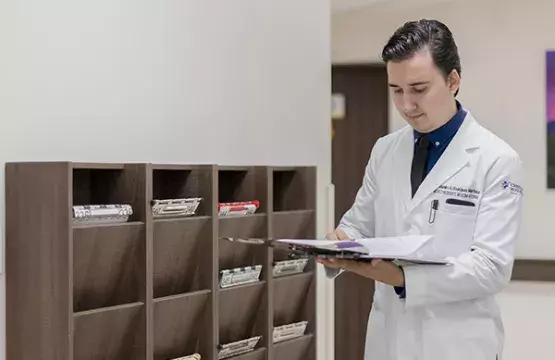
Admission profile
Knowledge
-
Understand the scientific foundations of medicine, particularly in General Surgery.
-
Have extensive knowledge of scientific methodology and epidemiological methods.
-
Master the Spanish language both orally and in writing.
-
Understand and translate the English language.
Skills
-
Manage diagnostic and therapeutic procedures in Preventive Medicine and Epidemiology.
-
Work effectively in a team.
-
Systematically retrieving medical information.
-
Have basic internet navigation skills.
-
Know how to use Microsoft Office.
-
Manage statistical packages.
Attitudes
-
Demonstrate warmth and availability in patient and family care.
-
Act with discipline, order, and punctuality.
-
Possess values of honesty and respect for others.
-
Maintain a habit of studying and participation in continuous education activities.
-
Promote a healthy lifestyle to prevent diseases and enjoy a better quality of life.
-
Have an enterprising spirit, attitude for academic advancement, and self-learning.
-
Take responsibility and leadership in the healthcare team.
-
Demonstrate perseverance in professional development.
Graduate profile
Upon completion of this Subspecialty in Cardiothoracic Surgery, you will have acquired the following knowledge:
-
Demonstrate deep knowledge of the embryological, anatomical, genetic, and physiological foundations of cardiothoracic structures, as well as the natural history of cardiovascular diseases (acquired and congenital), their pathophysiological mechanisms, and anatomopathological lesions, and methods for primary, secondary, and tertiary prevention.
-
Have knowledge of diagnostic procedures ranging from medical history to invasive and non-invasive diagnostic imaging studies: chest X-ray, electrocardiogram, stress test, echocardiogram, cardiac computed tomography, cardiac magnetic resonance imaging, cardiac scintigraphy, cardiac catheterization, and positron emission tomography, as well as their indication, interpretation, utility, risks, and complications.
-
Perform actions for prevention, self-care, diagnosis, medical-surgical treatment, and rehabilitation with the support of current technological resources available for comprehensive care of cardiothoracic problems and their complications.
-
Apply current national and international regulations related to discipline and quality healthcare with an emphasis on patient safety.
-
Understand the theoretical aspects of the teaching-learning process applied to patient training, accompanying family members, and the multidisciplinary healthcare team related to their discipline.
-
Promote healthy lifestyle habits, identifying risk factors considering intercultural elements.
-
Apply knowledge of information and communication technologies to their daily practice.

Upon completion of this Subspecialty in Cardiothoracic Surgery, you will have acquired the following skills:
-
Apply with skill and dexterity the most updated procedures and technical resources in Cardiothoracic Surgery for the prevention, diagnosis, and comprehensive treatment of cardiothoracic diseases.
-
Perform with expertise the specific procedures of the discipline: sternotomy, arterial cannulation, orotracheal intubation, tracheostomy, pericardiocentesis, pericardial window, coronary revascularization, prosthetic valve implantation, pacemaker implantation, palliative and corrective surgical procedures for congenital heart diseases, anatomical and non-anatomical lung resection, thoracentesis, pulmonary decortication, endoscopic biopsy, transplantation.
-
Address the pediatric patient with congenital heart disease comprehensively and select specific surgical techniques for their correction or palliation.
-
Integrate, in a timely and hierarchically ordered manner, the different medical problems of the patient to establish appropriate diagnoses, proposing the best surgical option.
-
Treat the sick individual as a biopsychosocial entity in the areas of their competence, including hospitalization, outpatient care, hemodynamics, operating room, and intensive care.
-
Provide ongoing communication resulting in effective information exchange and proper relationships with patients, their families, and the healthcare team.
-
Plan a study and treatment program correctly, including emergency cases and based on scientific criteria, with principles of quality service to contribute to sustainable human development with equity and justice.
-
Coordinate with other specialists to offer the best comprehensive therapeutic option.
-
Participate as a leader in multidisciplinary care for heart and lung transplant patients.
-
Employ scientific methods to conduct clinical research and design research projects that address the health needs of the population.
-
Demonstrate timely responsiveness to emerging diseases by establishing prevention and control strategies.
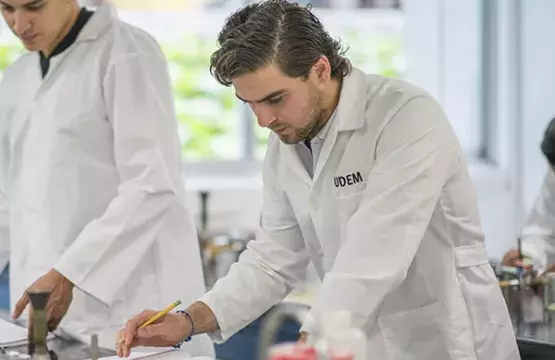
Upon completion of this Subspecialty in Cardiothoracic Surgery, you will have acquired the following attitudes:
-
Apply the ethical and deontological principles of medical practice.
-
Assume responsibility and a service-oriented attitude towards the issues involved in the health-disease process.
-
Achieve a positive and respectful relationship with the patient, family, and professional environment.
-
Prioritize medical decision-making in prevention, diagnosis, treatment, and rehabilitation, based on risk-benefit and cost-benefit balances, contributing to improving the patient's quality of life.
-
Demonstrate deep respect for the environment.
-
Have an awareness of their social responsibility and importance within the healthcare system.
-
Practice self-criticism that allows them to recognize their limitations, seek support when necessary, and refer the patient when appropriate.
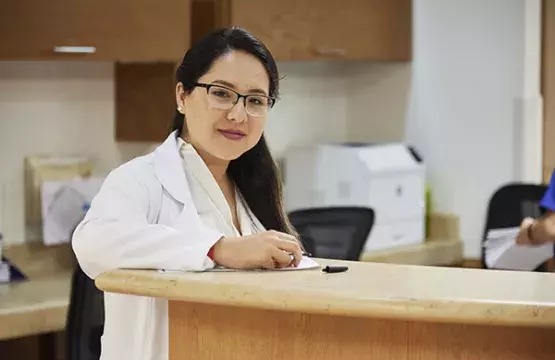
Live an experience abroad
Have an academic experience abroad for a summer, a semester or a year.
See moreCurriculum
Consult the courses that you will take in the Subspecialty in Cardiothoracic Surgery.
| Code | Course | Credits |
|---|---|---|
| ESCC1001 |
Clinical Training in Cardiothoracic Surgery I |
70 |
| ESCC10012 |
Attention in Cardiothoracic Surgery I |
24 |
| ESCC1003 |
Clinical Management |
4 |
| ESCC1004 |
Research I |
12 |
| Code | Course | Credits |
|---|---|---|
| ESCC2001 |
Clinical Training in Cardiothoracic Surgery II |
70 |
| ESCC2002 |
Attention in Cardiothoracic Surgery II |
24 |
| ESCC2003 |
Health Education |
4 |
| ESCC2004 |
Research II |
12 |
| Code | Course | Credits |
|---|---|---|
|
ESCC3001 |
Clinical Training in Cardiothoracic Surgery III |
70 |
|
ESCC3002 |
Attention in Cardiothoracic Surgery III |
24 |
|
ESCC3003 |
Bioethics and Medical Professionalism |
4 |
|
ESCC3004 |
Research III |
12 |
| Code | Course | Credits |
|---|---|---|
| ESCC4001 |
Clinical Training in Cardiothoracic Surgery IV |
70 |
| ESCC4002 |
Attention in Cardiothoracic Surgery IV |
24 |
| ESCC4003 |
Research IV |
12 |
Professors of the Vice-Presidency of Health Sciences
Stories
Learn about the success stories of our graduates.

